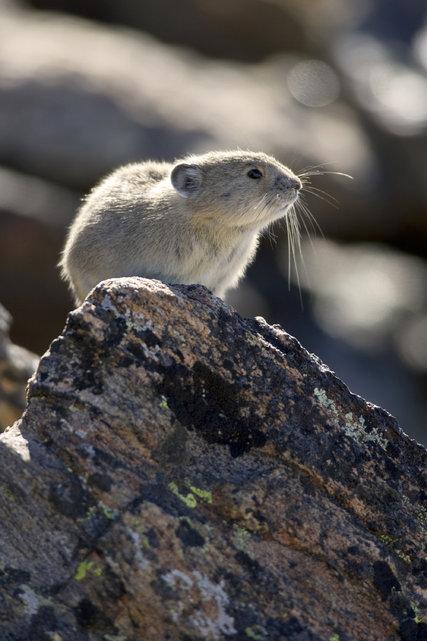You are here
 Image: The American pika lives in rocky mountain areas and boulder-covered hillsides. In recent years, it has been retreating to higher elevations. Since the 1990s, some pika populations along the species’ southernmost ranges have vanished. Credit Science Source
Image: The American pika lives in rocky mountain areas and boulder-covered hillsides. In recent years, it has been retreating to higher elevations. Since the 1990s, some pika populations along the species’ southernmost ranges have vanished. Credit Science Source
nytimes.com - April 30th 2015 - Carl Zimmer
Climate change could drive to extinction as many as one in six animal and plant species, according to a new analysis.
In a study published Thursday in the journal Science, Mark Urban, an ecologist at the University of Connecticut, also found that as the planet warms in the future, species will disappear at an accelerating rate.
“We have the choice,” he said in an interview. “The world can decide where on that curve they want the future Earth to be.”



Comments
Accelerating Extinction Risk From Climate Change
sciencemag.org - by Mark C. Urban - May 1, 2015
Science 1 May 2015:
Vol. 348 no. 6234 pp. 571-573
DOI: 10.1126/science.aaa4984
Abstract
Current predictions of extinction risks from climate change vary widely depending on the specific assumptions and geographic and taxonomic focus of each study. I synthesized published studies in order to estimate a global mean extinction rate and determine which factors contribute the greatest uncertainty to climate change–induced extinction risks. Results suggest that extinction risks will accelerate with future global temperatures, threatening up to one in six species under current policies. Extinction risks were highest in South America, Australia, and New Zealand, and risks did not vary by taxonomic group. Realistic assumptions about extinction debt and dispersal capacity substantially increased extinction risks. We urgently need to adopt strategies that limit further climate change if we are to avoid an acceleration of global extinctions.
CLICK HERE - RESEARCH STUDY - Accelerating Extinction Risk From Climate Change